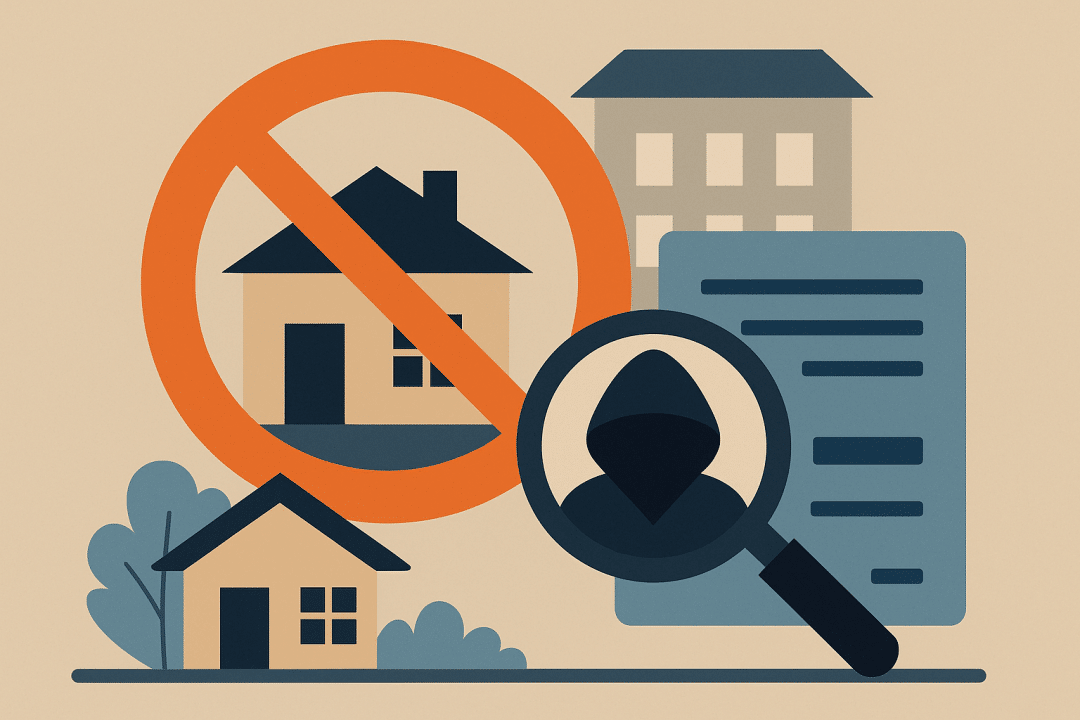
Scammers are targeting low-income renters across the U.S. with fake Section 8 housing offers and fraudulent application sites. In 2025, reports of Section 8-related scams have surged as criminals exploit the growing demand for affordable housing.
Scammers trick desperate housing voucher applicants into paying fees, giving up personal information, or clicking on fraudulent links disguised as official sources.
How Section 8 scams work in 2025
Housing scammers often impersonate government programs or housing authorities to lure victims. The most common tactics include:
- Fake Section 8 application websites: Scammers create fake Section 8 application websites that mimic real housing authority sites but use .com or .net domains instead of .gov. They collect Social Security numbers, bank details, and demand application “fees” not required by the real program.
- Text messages and phishing emails: Scammers send fake text messages and phishing emails, claiming that Section 8 waitlists are open or that they’ve selected the recipient for a voucher. These messages include malicious links.
- Social media ads: Fraudulent Facebook or Instagram ads may promote “guaranteed approval” or “immediate housing access,” leading to scam landing pages.
- “Expedited processing” schemes: Scammers ask victims to send money via prepaid card, Cash App, or Venmo in exchange for faster approval—something no legitimate housing authority offers.
Red flags to watch for
Here are signs that a Section 8 opportunity might be a scam:
- You’re asked to pay an application fee or “expedited processing” charge
- The website doesn’t end in .gov or lacks a verifiable housing authority name
- You receive unsolicited texts or emails with links to apply
- The offer includes guaranteed approval or immediate access to a voucher
- You can’t verify the phone number or address of the organization contacting you
- The site or message contains misspellings or odd formatting
Official sources you can trust
To safely apply for or check the status of a Section 8 voucher, only use official government resources:
- HUD’s Public Housing Authority (PHA) locator:
https://www.hud.gov/program_offices/public_indian_housing/pha/contacts - HUD’s main Section 8 program page:
https://www.hud.gov/topics/housing_choice_voucher_program_section_8 - Local housing authority websites: These should end in .gov or be listed in HUD’s PHA directory.
Legitimate PHAs never charge application fees and only accept applications during official waitlist periods.
What should you do if scammed?
If you believe you’ve been targeted by a Section 8 scam:
- Stop all payments immediately (contact your bank or payment service).
- Report the fraud to the Federal Trade Commission at https://reportfraud.ftc.gov.
- File a local police report if money or personal information was stolen.
- Monitor your credit and consider placing a fraud alert through Equifax, Experian, or TransUnion.
How to report housing scams
Anyone can report a suspected housing scam or fraudulent Section 8 site by:
- Submitting a complaint to HUD’s Office of Inspector General:
https://www.hudoig.gov/hotline - Reporting identity theft through the FTC:
https://www.identitytheft.gov - Contacting your local housing authority directly to verify offers or report fraud attempts
Key Takeaways
- Section 8 scams are increasing as demand for affordable housing rises.
- Never pay fees or give personal information on non-.gov websites.
- Use HUD’s verified tools to check waitlist status or apply for vouchers.
- Victims should report scams and take action to protect their identity.

